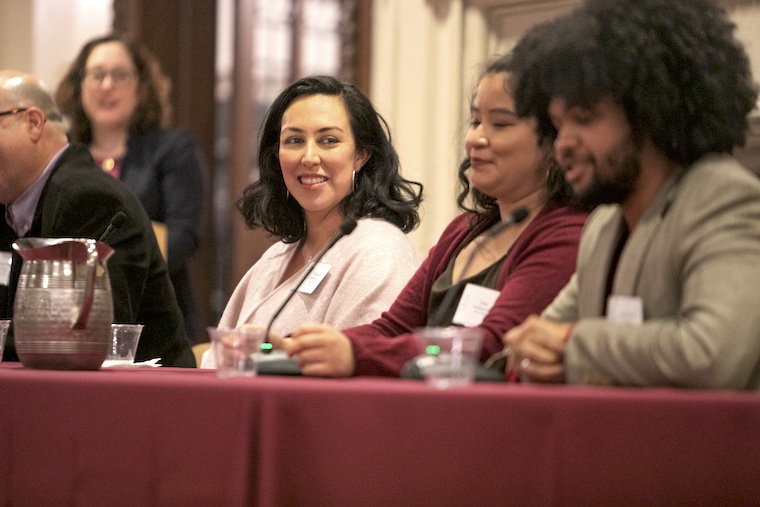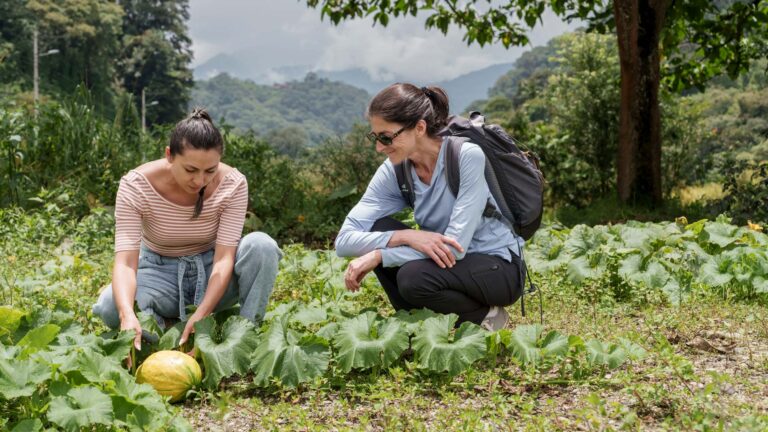Latin America is a broad and diverse region comprising not only South America, but also Central America, Mexico, and parts of the Caribbean. Over the years, WashU has built strategic networks within and across these countries to address challenges both common and unique to their rich cultures and histories, diverse economies, and shifting political environments.
Our partnership with Latin America combines education with high-impact scientific work aimed at improving the quality of life. These efforts include focusing on brain studies related to malnutrition, exploring the climate and culture in the fragile ecosystem of the Peruvian Andes, and developing nutrition and parenting programs to promote healthy growth and reduce stunting among underserved children. With our partners, we implemented the first Alzheimer’s disease genetic counseling and testing programs in several countries, and another collaboration helped launch Haiti’s first undergraduate degree program in public health.
In early 2023, WashU launched La Comunidad, or “the community,” a new alumni network focused on engaging and connecting the university’s Hispanic, Latinx, and Latin American graduates. This community will further expand and strengthen our reach and impact as a global university committed to helping meet the world’s challenges.
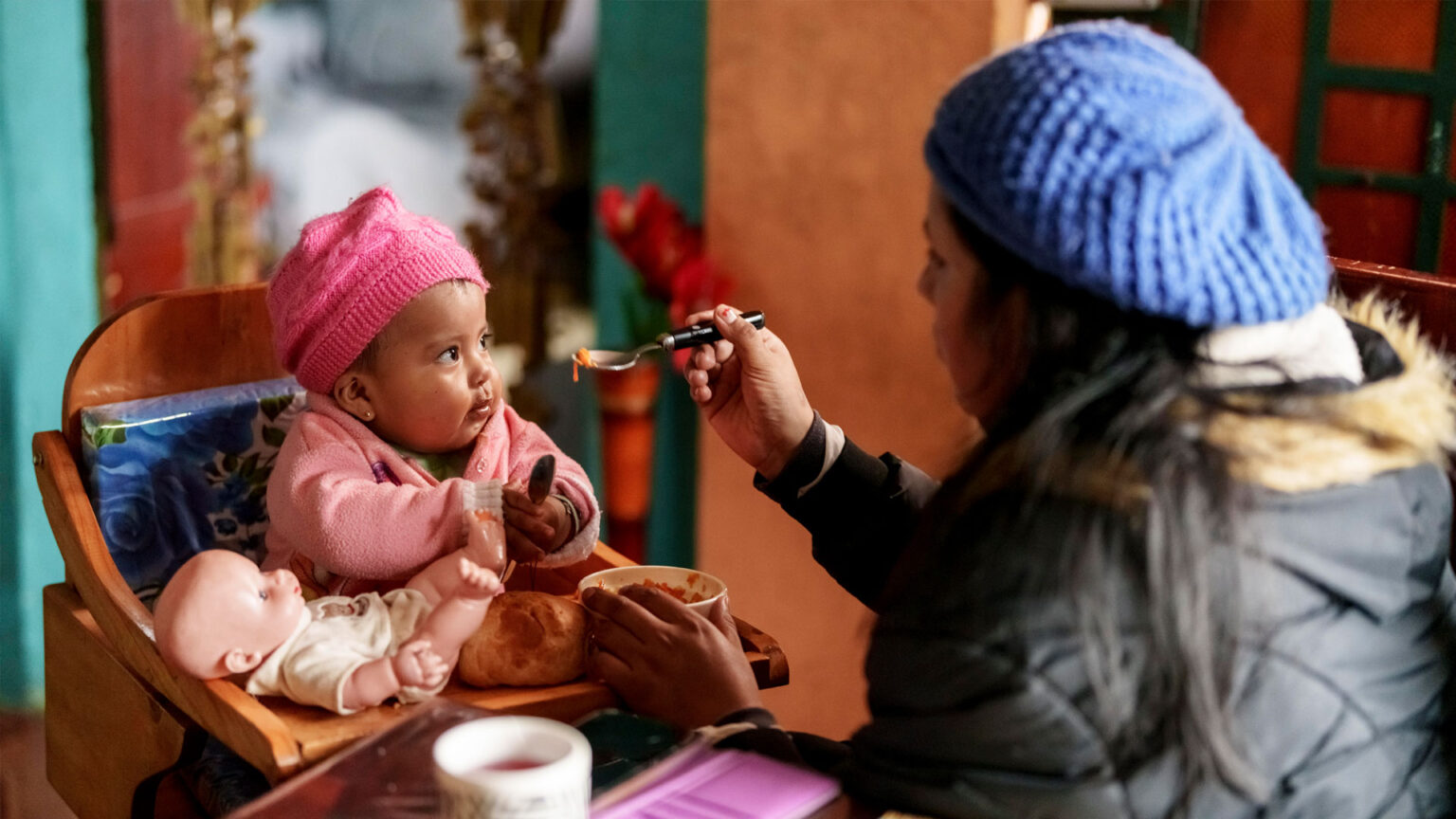
If nutrition is compromised by poor-quality diet, infectious disease or otherwise during the first 1,000 days of life, children will likely never reach their full genetic potential.
Lora Iannotti, Founder and Director of the E3 Nutrition Lab and Professor at Brown School
Research excellence
WashU’s collaborations with Latin America demonstrate its commitment to research excellence. The university engages in high-impact scientific work with its Latin American partners on critical issues related to brain studies, climate and culture, nutrition, and public health.
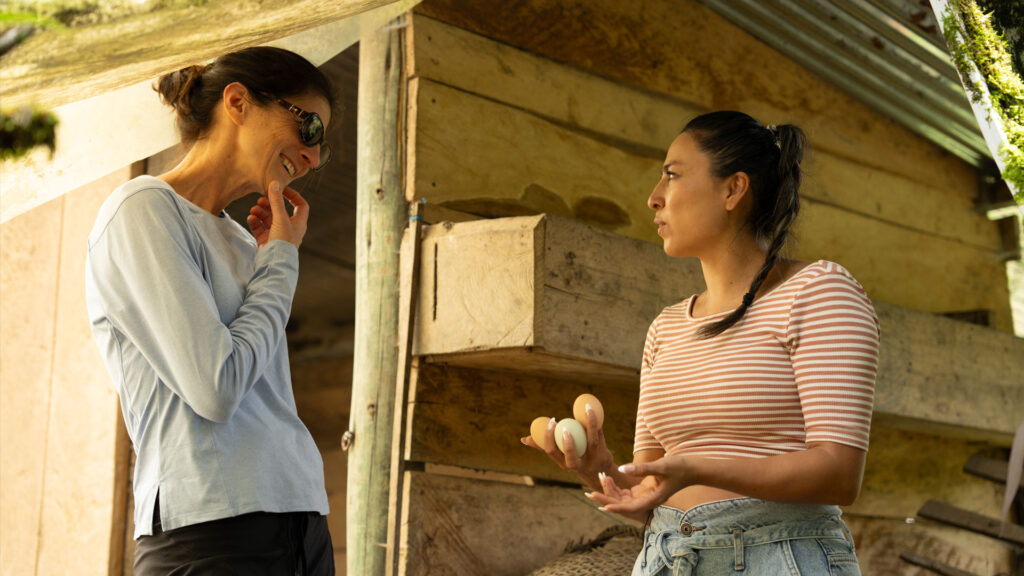
Halting hidden hunger
Can improved nutrition during pregnancy help prevent stunted growth in children around the world? With partners in Ecuador, Lora Iannotti studies the effects of maternal diet on infant brain development.
More research stories
Lizards reveal workings of evolution
Renowned evolutionary biologist Jonathon Losos has spent his storied career studying anole lizards in South America and the Caribbean. The small, primarily tree-dwelling creatures, a relation to the iguana, encompass some 400 species, and nearly half of them live on islands.
The role of political ideology in COVID-19 mitigation and more
Guillermo Rosas studies the economic consequences of political regimes and the effects of political institutions on political elite behavior, especially in Latin America.
Improving nutrition for children in Haiti, Ecuador, and beyond
Having worked in Haiti for more than 30 years, Lora Iannotti has witnessed the country’s dire health problems and specifically, the lack of young child nutrition in resource-poor settings.
Education and outreach
Latin America is a region of great economic importance, with significant implications for global development and sustainability. Through its education and outreach efforts, WashU seeks to engage with Latin America’s complex political, economic, and social landscape, shaped by historical and contemporary factors.
Programs and partnerships
A major or minor in Latin American Studies (LAS) is an excellent complement to any other major program at WashU. Latin America is the location of major US trade partners, and Latin American immigrants constitute the largest segment of market growth in the US, including in the major economic markets. This makes the LAS major a great companion to a business degree. Business majors and M.B.A. graduates with a Latin American studies background have a comparative advantage in the global market, as large corporations seek executives with a better understanding of the region’s complex social, cultural and economic issues.
Why Latin American Studies?
Latin American Studies is a gateway to the region and its cultures, politics and history. The major in Latin American Studies can be studied on its own, providing knowledge about a region valuable for employers across different fields and industries. Focusing on Latin America allows students to engage with one of the most fascinating historical trajectories in the world, with diverse cultures where the traditional and the modern are always negotiating, and with the opportunity to participate in vibrant business, intellectual and political scenes. Latin America is a region at the forefront of policy reform, embedded in the complex networks of global economics, development, social engagement and cultural expression. Because of the region’s importance, the LAS major provides key skills for today’s jobs.
Latin America offers an increasing number of study abroad and fellowship opportunities. At WashU, we have in place in-house programs in Chile, Mexico and Ecuador, with other countries forthcoming. Some of our students apply to other programs and fellowships with environmental, political and social organizations in the region. NGOs and institutions such as Fulbright, Comexus, the Ford foundation, Human Rights Watch and Greenpeace have a strong presence in Latin America, with a wide array of fellowship and internship opportunities.
The Association of Latin American Students (ALAS) exists to create and foster an atmosphere in which the WashU Hispanic/Latino community is able to work together to promote cultural awareness, education, and fellowship for the benefit of the wider community. ALAS strives to share with WashU the vibrant and lively traditions of Latin America through programs such as the annual Carnaval, a celebration of Latin culture featuring many dances as well as a skit.

WashU undergrads partner with Tecnológico de Monterrey on podcasts
At WashU, students in a Spanish seminar collaborated on a joint research project with students from the Tecnológico de Monterrey. The exchange–a bilingual mix of shared experiences and diverse perspectives–examined migration in contemporary times.
More education stories
Food for thought
In the course “Not a Piece of Cake: Culinary Crossroads of Latin American Cultures,” Elzbieta Sklodowska, the Randolph Family Professor of Spanish in Arts & Sciences, focuses on the history and cultural significance of chocolate and many other foods.
Welcome to La Comunidad
WashU’s new network for Hispanic, Latinx and Latin American alumni is nearly 20 years in the making. In 2002, Jorge Castillo, AB ’06, arrived on campus as one of roughly 3% of Washington University undergraduates who identified as Latinx.* He was drawn to WashU by the Annika Rodriguez Scholars Program, a merit-based and service-driven scholar […]
WashU undergrads partner with Tecnológico de Monterrey on podcasts
WashU Spanish students collaborated on a joint research project with students from the Tecnológico de Monterrey, Ciudad de México campus.
Alumni networks and impact
Did you know more than 45 alumni, parents, and friends live in Buenos Aires? International networks support WashU alumni, students, families, and friends by offering opportunities to socialize, network, and share memories. We welcome you to reach out, make new connections, and build on your lifelong connection with WashU.
WashU CNX is the university’s online networking platform where alumni and current students share experiences and expertise, ask questions, find answers, and help each other grow. They make meaningful connections every day.
NETWORK CONTACT
Vijay Ramani
Vice Provost for Graduate Education and International Affairs
- 314-935-7924
- International.Alumni@wustl.edu
Contacts by Major City
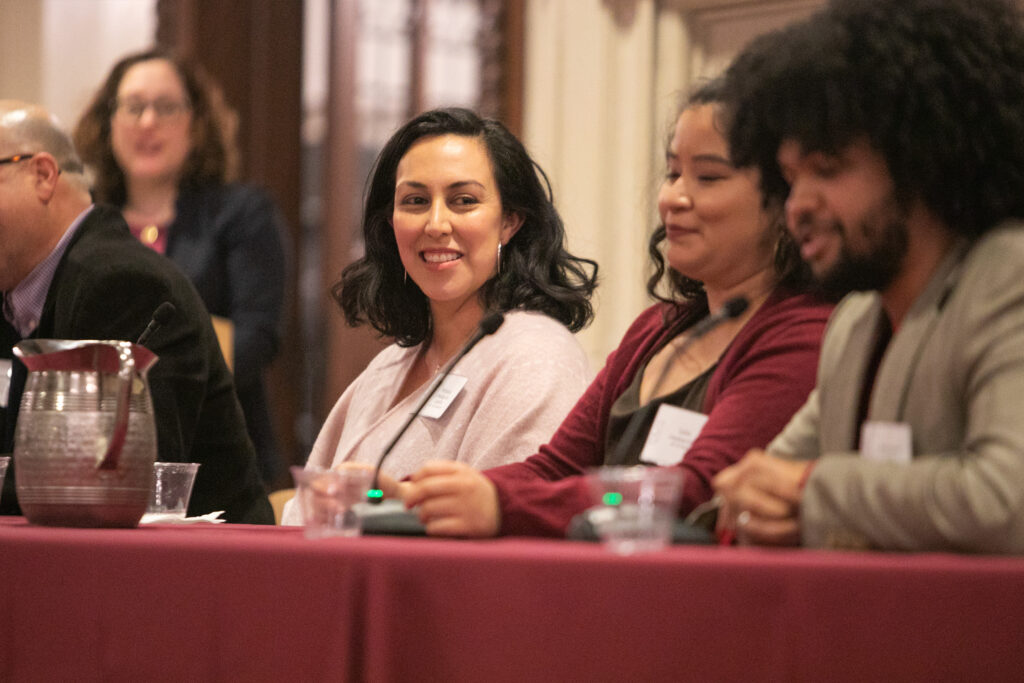
La Comunidad: a cultural home for a diverse community
On Jan. 18, 2023, a highly dedicated group of WashU alumni braved pouring rain to celebrate the launch of La Comunidad, or “the community,” a new alumni network focused on engaging and connecting the university’s Hispanic, Latinx, and Latin American graduates.
More alumni stories
Waves of Change
Alumna María Isabel Dabrowski discusses science outreach, the importance empathy and how she launched a career in environmental conservation. María Isabel Dabrowski, AB ’18, combines her fascinations with marine life and behavioral science as a senior outreach associate at Rare’s Center for Behavior & the Environment, the world’s first center focused exclusively on behavioral science […]
Teaching beyond the call: Andia Augustin-Billy
In October 2021, Andia Augustin-Billy, MA ’09, PhD ’15, became the first Black faculty member to receive tenure at Centenary College of Louisiana in its 196-year history.
Latest news in Latin America
Explore our impact in other regions
No single map can reflect all global perspectives. The country borders on this map do not reflect the official policy of Washington University in St. Louis or any specific government.


